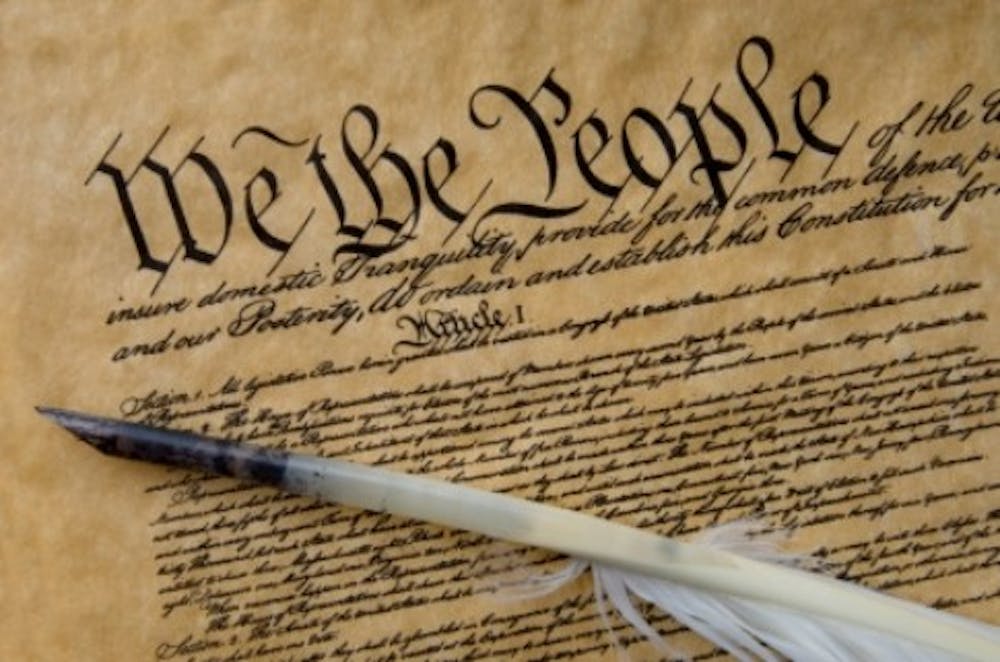As bars and restaurants began to reopen this summer, so did religious institutions. The operation of churches posed the issue of remaining in close quarters for extended periods of time in the midst of a pandemic. Last month, Opinion Writer Nicole Chebili argued that the University should “cease unconstitutional exemptions for religious gatherings.” However, the United States Constitution enshrines the right to free speech, press, assembly, petition and religion. Supreme Court precedent has clearly established that public universities have no exception to these fundamental freedoms.
The freedom of religion has an essential role in United States history, given that the country was founded on that very ideal. This underscores why it’s so important for the government to uphold religious freedom, especially in times of political unrest and uncertainty. Universities serve to educate the next generation of leaders and must act to protect — rather than restrict — these freedoms. The First Amendment is often referred to as the “first liberty” because freedom of thought and belief is thought to be of utmost importance. Diversity of thought and belief should be at the forefront of the learning community at the University.
In this column, Chebili claims that the University should continue to restrict students from going to religious services in Charlottesville. It is important to note that as long as they are not directly affiliated with the University, religious institutions must already follow city ordinances, which require gatherings to remain under 50 people. It is not the University’s job — nor is it the University’s right — to interfere with students' ability to worship. It sets a dangerous precedent to restrict the freedom of religion by any means. The freedom of religion was a founding pillar of our American Democracy and it must be upheld.
Chebili also mentions that online services provide the same quality “sermons, community building and worship.” This statement lies in direct contradiction to the religious beliefs of many Christians, for example, who place a great importance on worshiping in person. It is indeed not the same to worship online, as in-person fellowship is essential to Christian life, as well as many other religions. Furthermore, it is not the government’s right to dictate the means by which its citizens practice religion.
Next, the column claims that protesting is “essential” and protected under the Constitution, but religious gatherings are not. The right to assemble dually covers protests and gathering for religious reasons. Under her own line of reasoning, religious gatherings are in fact equally essential, and should be regarded as such by the University. Calling for the University to restrict student attendance of any religious service — without applying the same standards to protests — is blatantly hypocritical.
Recently, students and the University alike have repeatedly called for restrictions to the religious clause of the First Amendment. In another article, students called for the Fellowship of Chiristian Athletes to be disbanded at the University. This is based on the fact that the Fellowship requires students who wish to hold a leadership position to sign a statement of faith that includes the traditional definition of marriage. No matter how some students feel, the University should not restrict religious freedoms and should reject calls to do so. Disagreement with the beliefs of a particular religion does not suddenly grant the University the power to restrict its practice.
Religion is critical to many students on Grounds. There is great diversity in religious organizations, and they provide an essential space for students to practice their religious beliefs. For many, religion is sacred and the opportunity to practice that religion on Grounds is paramount.
It can be difficult to see CIO’s promote ideals that one disagrees with. There exist groups like the College Republicans or the University Democrats who highly encourage their members to affiliate with the party. The University is supposed to be a place for intellectual growth and discovery, groups with different opinions on Grounds contribute to and diversify the learning community. The University must not shut down an individual or group’s ability to speak or assemble simply because others don’t agree with them, on any matter from political speech to religious expression.
Historically, the University has protected and upheld the First Amendment, while other schools have fallen behind the curve, restricting speech with “free speech zones.” U.Va must continue to lead in this area. It is fitting that the University was founded by Thomas Jefferson, the very man who inspired the Bill of Rights, drafted the Virginia Statute for Religious Freedom and led the charge against the restriction of the church by the state. In keeping with the ideals set forth by Thomas Jefferson, the University must reject calls to restrict the freedom of religion.
Devan Coombes is a Viewpoint Writer for The Cavalier Daily. She can be reached at opinion@cavalierdaily.com.
The opinions expressed in this column are not necessarily those of The Cavalier Daily. Columns represent the views of the authors alone.







